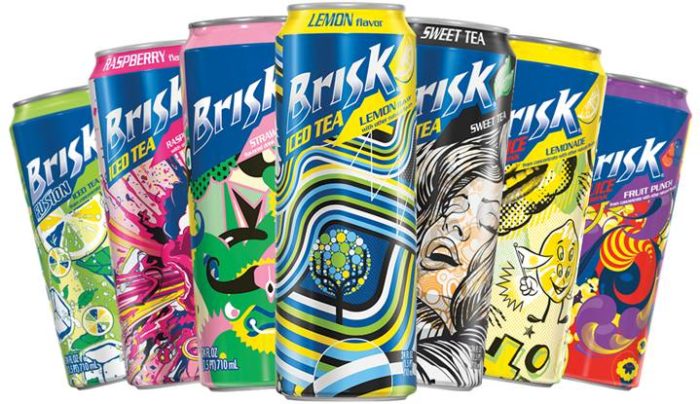
Managed by the Pepsi Lipton Partnership, Brisk has become popular for its refreshing iced teas and delicious fruit flavors. History and Brand Management of Briskīrisk is a well-known brand that offers a wide range of tea and juice products. Therefore, understanding the amount of caffeine present in beverages like Brisk Iced Tea is crucial for making informed choices about what they consume. It’s important for those with alcoholism to consider the potential effects of caffeine on their recovery journey, as it may disrupt their sleep or contribute to heightened anxiety levels. While moderate consumption of caffeine can be safe for most people, excessive intake can lead to various health issues such as increased heart rate, high blood pressure, and even addiction.Ĭaffeine can also interfere with sleep patterns and cause restlessness or anxiety in some individuals. The caffeine content in Brisk Iced Tea has raised some health concerns among consumers. Impact of caffeine content on health concerns It’s important to note that while some flavors like Brisk Energizing Iced Tea and Brisk Diet Lemon Iced Tea have been discontinued in the United States, they are still available in other countries. Another factor that could contribute to the decision is evolving consumer preferences and demands for healthier beverage options.Īs a result, Brisk may be exploring new flavors and formulations that align better with current market trends and cater to a wider range of customers’ needs. Some individuals may have expressed worries about consuming too much caffeine, especially those with certain medical conditions or those who are sensitive to its effects. One possible reason could be health concerns related to the caffeine content in iced tea. There has been much speculation surrounding the reasons for the discontinuation of Brisk Iced Tea flavors. Speculation about reasons for discontinuation This abrupt discontinuation not only triggered disappointment among loyal consumers but also caused a surge in searches for remaining Brisk Diet Lemon Iced Tea stocks at retailers like Dollar General and online platforms like PepsiCo Tasty Rewards. While speculations arise about potential health concerns or unfavorable sales performance driving this step back, nothing concrete has been shared by the brand itself yet. The decision fell under Pepsi Lipton Partnership’s management oversight, who’ve yet to reveal their exact reasoning behind it. This much-loved variant, known for its refreshing tang and zero-sugar appeal, disappeared from store shelves without prior announcement, leaving customers in quite the conundrum. The Mountain Dew brand has continued to be successful because of its non-stop experimentation of new flavors that together form a massive catalog of unique products, none of which would be possible without the Original Mountain Dew beverage.Recent discontinuation of Brisk Diet Lemon Iced Teaīrisk Iced Tea fans recently faced a surprising shakeup when the popular Diet Lemon flavor was discontinued. Other notable aspects of the brand their release schedule, including several holiday, retail, restaurant, and regionally-specific releases stretch between bottle, can, fountain, freeze, and Slurpee forms. These flavors, while all distinct, all maintain a similar core taste. A large segment of Mountain Dew's success could be held responsible for its myriad amongst these flavors. Mountain Dew has spawned a massive line of products, each with its differently unique flavor and theme, more than any other soda.

The Mountain Dew brand has run countless promotions, had numerous celebrity tie-ins, coined several catchphrases, grown a dedicated fanbase, become available in countless countries around the world, and overall has developed into a pop culture staple. Ever since evolved in its 80+ year lifetime by changing packaging and logos to stay relevant, tweaking the taste, commanding the citrus soda market, and expanding to become a household name. It switched ownership in 1961 and was then acquired by PepsiCo in 1964. In 1958, Mountain Dew received a formula change by Bill Bridgforth created a new and improved formula based on the two co-founders drink by merging the original existing recipe with his lemonade soda. It was first distributed in 1954 and after a few years. Mountain Dew's formula was first developed in Tennessee in 1940 by Barney and Ally Hartman, who were beverage bottlers. History Main article: Mountain Dew Timeline However, it is produced with green-tinted bottles to make the drink look more appetizing. While some have compared Mountain Dew to lemon-lime soda, it is antithetically different and unique from them and has spawned many imitators from the Original Mountain Dew. The soft drink is unique because it includes a small amount of orange juice. Original Mountain Dew is a citrus-flavored soda.


 0 kommentar(er)
0 kommentar(er)
